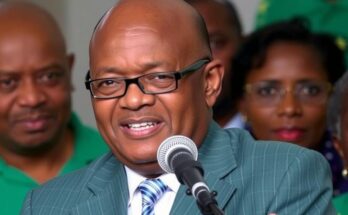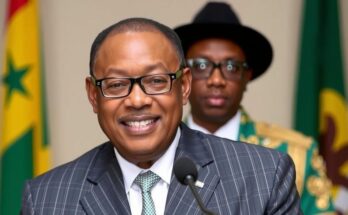Tunisia’s recent elections have faced condemnation from opposition groups for being unfair and lacking transparency, undermining the country’s democratic process. Despite government assurances, numerous irregularities reported have fueled dissatisfaction among the populace, indicating a significant demand for reform.
Tunisia has conducted an election that the opposition has criticized as being rife with unfair practices, casting doubt on its legitimacy. This election was characterized by notable restrictions on political freedoms and a challenging environment for opposition voices. Many dissenting groups have raised concerns about the electoral process, claiming that it lacks transparency and inclusivity, ultimately undermining the democratic values that the nation aspires to uphold. Despite the government’s assurances of a fair and free process, numerous reports suggest widespread irregularities that have prompted protests and calls for reform among the populace and political factions. As the results commence to be announced, there remains a palpable sense of distrust among many Tunisians regarding the authenticity of the electoral outcome. The situation highlights ongoing tensions within the country as political divides deepen amidst calls for reform and accountability.
The political landscape in Tunisia has been tumultuous since the 2011 revolution resulted in the overthrow of longtime President Zine El Abidine Ben Ali. In subsequent years, the country has struggled to balance democratic aspirations with political reality, including the rise of political Islam and ongoing economic challenges. The latest election is viewed by many analysts as a critical moment for Tunisia’s democratic experiment. Reports indicate that various legal and institutional challenges have emerged, creating an atmosphere of skepticism about the fairness and equitability of the electoral process. The opposition has consistently highlighted issues such as media restrictions and political repression that they claim inhibit democratic participation.
In conclusion, the recent elections in Tunisia have been met with significant opposition and allegations of unfairness. As the country navigates its political future, the protests and dissent from various groups signal a clear demand for greater transparency and cooperation in governance. The resultant actions from both the government and the populace will be crucial in determining the direction of Tunisia’s democratic journey.
Original Source: www.aljazeera.com




